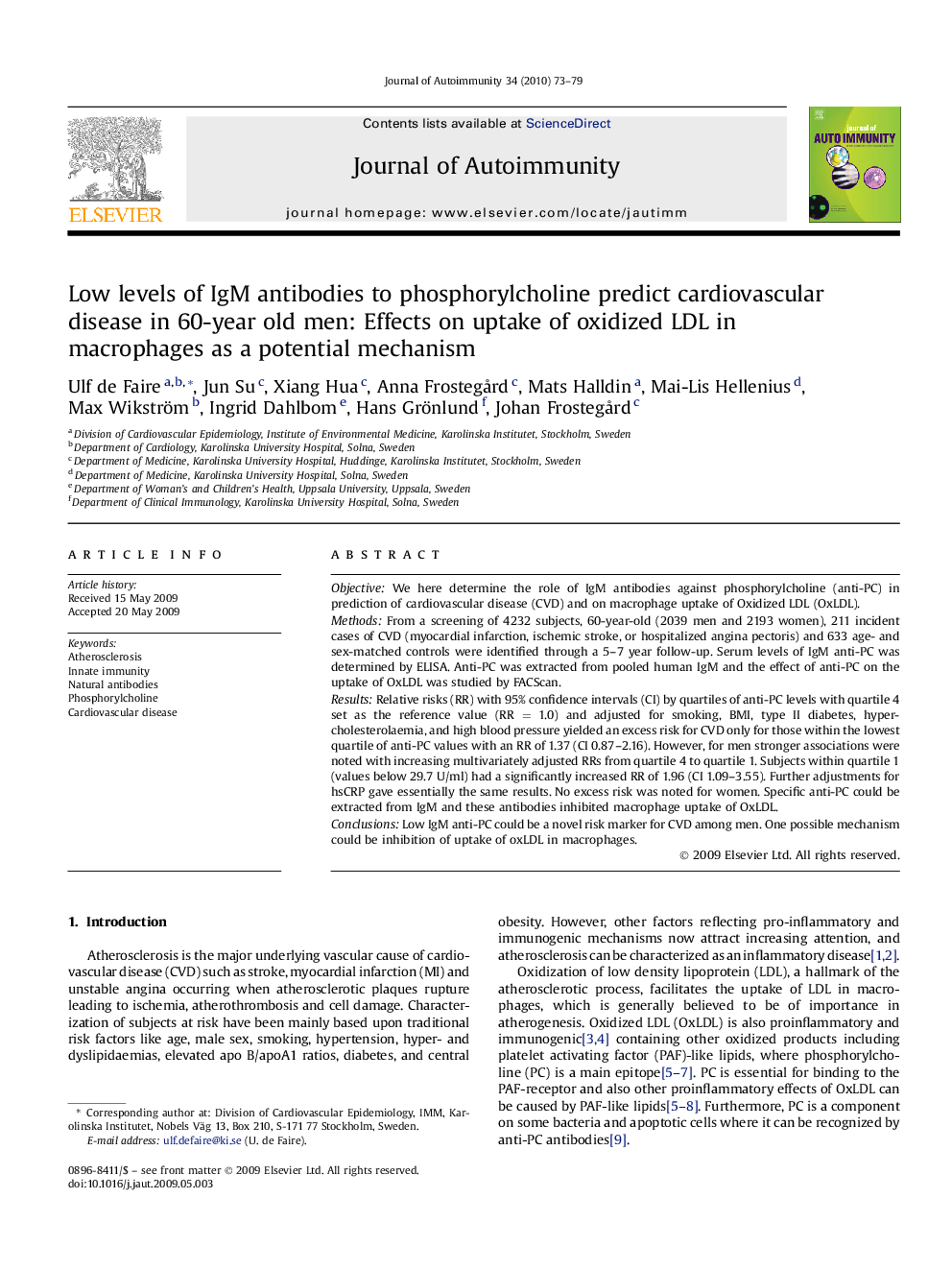| Article ID | Journal | Published Year | Pages | File Type |
|---|---|---|---|---|
| 3368150 | Journal of Autoimmunity | 2010 | 7 Pages |
ObjectiveWe here determine the role of IgM antibodies against phosphorylcholine (anti-PC) in prediction of cardiovascular disease (CVD) and on macrophage uptake of Oxidized LDL (OxLDL).MethodsFrom a screening of 4232 subjects, 60-year-old (2039 men and 2193 women), 211 incident cases of CVD (myocardial infarction, ischemic stroke, or hospitalized angina pectoris) and 633 age- and sex-matched controls were identified through a 5–7 year follow-up. Serum levels of IgM anti-PC was determined by ELISA. Anti-PC was extracted from pooled human IgM and the effect of anti-PC on the uptake of OxLDL was studied by FACScan.ResultsRelative risks (RR) with 95% confidence intervals (CI) by quartiles of anti-PC levels with quartile 4 set as the reference value (RR = 1.0) and adjusted for smoking, BMI, type II diabetes, hypercholesterolaemia, and high blood pressure yielded an excess risk for CVD only for those within the lowest quartile of anti-PC values with an RR of 1.37 (CI 0.87–2.16). However, for men stronger associations were noted with increasing multivariately adjusted RRs from quartile 4 to quartile 1. Subjects within quartile 1 (values below 29.7 U/ml) had a significantly increased RR of 1.96 (CI 1.09–3.55). Further adjustments for hsCRP gave essentially the same results. No excess risk was noted for women. Specific anti-PC could be extracted from IgM and these antibodies inhibited macrophage uptake of OxLDL.ConclusionsLow IgM anti-PC could be a novel risk marker for CVD among men. One possible mechanism could be inhibition of uptake of oxLDL in macrophages.
